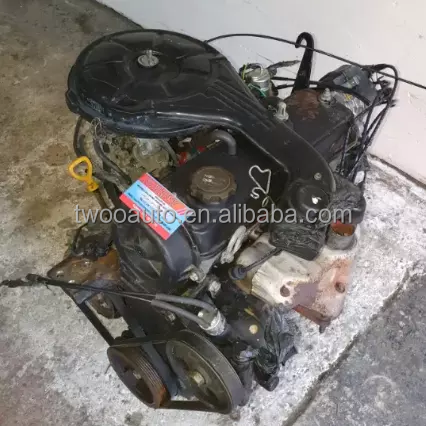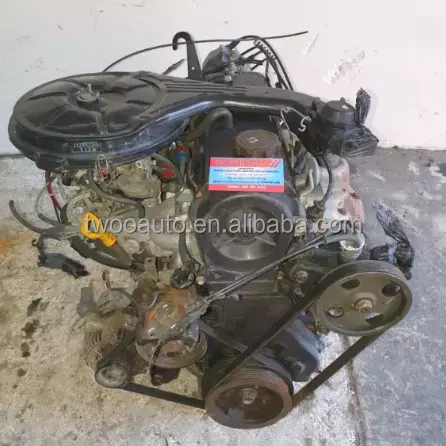Toyota Tazz: Essential Maintenance Tips to Keep Your Car Running Smoothly
Toyota Tazz: Essential Maintenance Tips to Keep Your Car Running Smoothly
Blog Article
Explore the Most Current Trends in Engine Technology With Tazz
In the rapidly evolving landscape of auto modern technology, Tazz stands at the center, highlighting substantial innovations in engine systems that prioritize both innovation and sustainability. From hybrid engines that optimize gas effectiveness to the introduction of hydrogen fuel cells, the fads forming modern-day powertrains are not just enhancing efficiency however also addressing critical ecological difficulties.
Hybrid Engine Innovations
Crossbreed engine advancements stand for a critical shift in auto innovation, combining the advantages of interior burning engines with electric propulsion systems. This assimilation not just enhances gas effectiveness yet likewise reduces discharges, meeting progressively strict ecological policies. By making use of both energy resources, hybrid engines can optimize efficiency, delivering power when required while preserving fuel throughout less requiring motoring conditions.
Current advancements in crossbreed technology include renovations in battery efficiency and regenerative stopping systems. These developments permit for greater energy recuperation during deceleration, which can be rerouted to aid in acceleration or power accessory systems. Makers are concentrating on small layouts and lightweight materials to optimize the performance of crossbreed powertrains.
The development of plug-in hybrids has also broadened the market, making it possible for drivers to charge their vehicles using conventional electric outlets. This attribute usually enables substantial all-electric range, further decreasing dependence on conventional fuels. tazz. As the automobile industry remains to evolve, hybrid engine technologies are expected to play a vital duty in bridging the space between conventional vehicles and fully electrical versions, supplying a transitional remedy that accommodates diverse consumer needs and choices
Breakthroughs in Electric Powertrains
The auto landscape is swiftly progressing, with electric powertrains becoming a leading force in lasting transport. Developments in electric vehicle (EV) modern technology are dramatically improving customer, performance, and efficiency experience. Trick advancements consist of improvements in battery chemistry, which have actually enhanced energy thickness, reduced charging times, and expanded total battery life.
Solid-state batteries, for instance, guarantee to reinvent the market by supplying greater safety and security and effectiveness contrasted to standard lithium-ion cells. Advancements in regenerative stopping systems are making it possible for cars to recoup energy during slowdown, contributing to general efficiency.
In enhancement to battery modern technology, electric motor styles are coming to be more advanced. Technologies such as integrated motors and advanced thermal administration systems are helping to enhance power distribution and lower weight, ultimately improving automobile characteristics.

Collectively, these advancements underscore the commitment to change towards cleaner, a lot more effective transportation services, positioning electrical powertrains at the center of vehicle advancement.
The Increase of Hydrogen Fuel Cells
Increasingly, hydrogen gas cells are obtaining grip as a feasible option to conventional internal burning engines and battery electric cars. This technology uses the chemical power kept in hydrogen, converting it right into electrical energy with an electrochemical reaction with oxygen. The key by-product of this process is water, making hydrogen gas cells an ecologically friendly alternative with absolutely no discharges at the tailpipe.

Automakers are progressively purchasing hydrogen fuel cell technology, acknowledging its possibility for long-range applications and quick refueling capabilities that equal conventional gas. Additionally, fields such as sturdy transportation and public transportation are specifically well-suited for hydrogen gas cells, where battery electrical solutions might fall short because of weight and range constraints.
As research study and investment continue to increase, hydrogen gas cells are poised to play a significant function in the future landscape of tidy transport and energy remedies.
Enhancements in Internal Combustion Engines
Advancements in interior burning engine (ICE) modern technology are transforming typical lorries to satisfy modern ecological criteria and performance assumptions. Among one of the most significant improvements includes the combination of sophisticated gas shot systems. These systems enhance the air-fuel mix, enhancing burning efficiency and leading to lowered discharges. Direct gas shot, for circumstances, permits much better atomization you can find out more of fuel, resulting in more full burning and improved power output.
Furthermore, turbocharging has actually obtained prestige, allowing why not try this out smaller engines to supply higher efficiency without the weight of larger engines - tazz. This modern technology not only boosts effectiveness but additionally contributes to reduce fuel usage. Variable valve timing systems are likewise being refined, allowing engines to adjust to different driving problems for improved torque and responsiveness
In addition, using light-weight materials in engine building is becoming typical, further boosting gas effectiveness by lowering overall automobile weight. Engine control devices (ECUs) are progressively innovative, enabling real-time modifications that maximize efficiency and emissions.
These improvements jointly signify an essential change in ICE technology, aligning with worldwide sustainability objectives while still providing the performance motorists anticipate from their vehicles. As the industry develops, these renovations proceed to shape the future of conventional vehicle design.
Future Fads in Engine Performance
Significant developments in engine effectiveness are expected as makers concentrate on incorporating cutting-edge technologies to meet strict environmental policies and consumer demands. The shift towards electrification, hybrid systems, and alternative fuels is reshaping the automotive landscape, driving developments that enhance fuel economy and lower exhausts.
Among the key patterns is the execution of sophisticated products and making techniques. Light-weight composites and high-strength alloys contribute to minimized automobile weight, hence enhancing general effectiveness. Furthermore, the adoption of turbocharging and variable shutoff timing modern technologies permits enhanced power outcome from hop over to here smaller engines, better boosting fuel economy.

Verdict
Advancements in crossbreed engine systems, electric powertrains, and hydrogen fuel cells demonstrate a commitment to minimizing exhausts while boosting performance. Improvements in internal combustion engines and a focus on lightweight materials add to total engine performance.
From crossbreed engines that maximize gas efficiency to the emergence of hydrogen fuel cells, the trends shaping modern powertrains are not only enhancing performance but also dealing with important ecological difficulties.Crossbreed engine advancements stand for a critical shift in automobile innovation, integrating the benefits of internal combustion engines with electrical propulsion systems.In addition, turbocharging has actually gotten importance, enabling smaller engines to deliver greater efficiency without the weight of larger engines. In addition, the adoption of turbocharging and variable valve timing modern technologies permits for enhanced power outcome from smaller engines, further boosting gas economic climate.
Improvements in internal burning engines and a focus on lightweight products add to general engine effectiveness.
Report this page